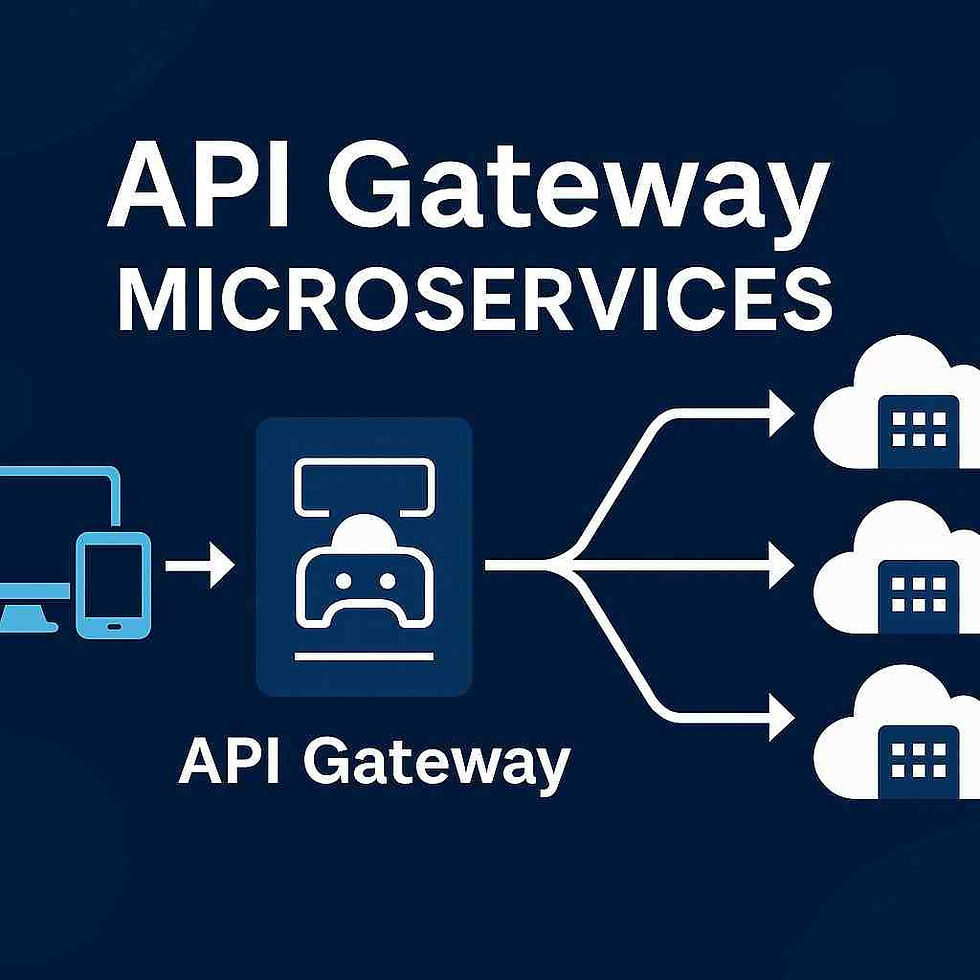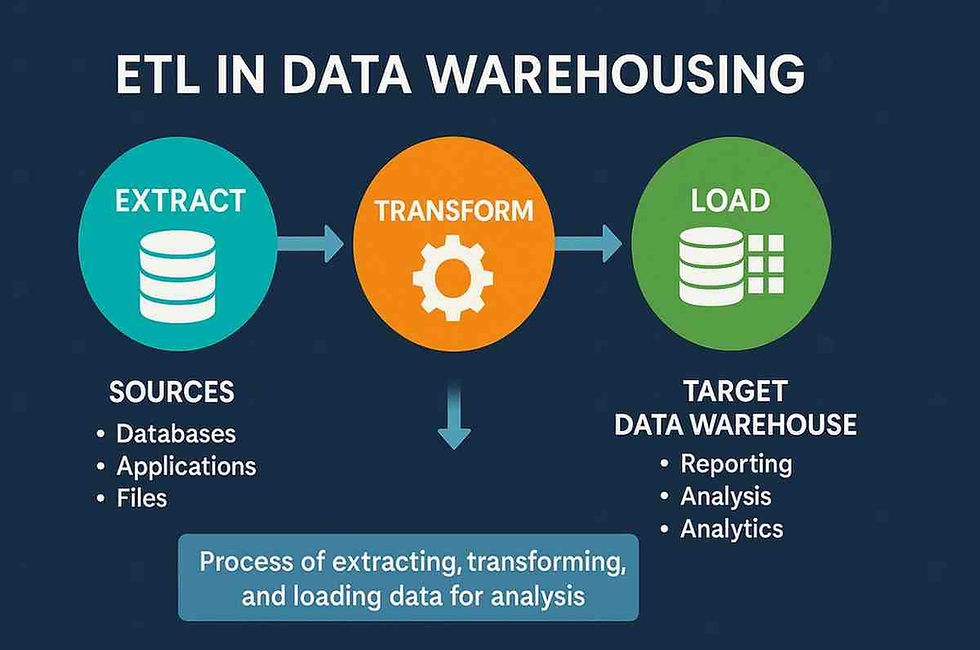Top API Testing Tools Compared: Your Complete Guide
- Gunashree RS
- Dec 13, 2024
- 5 min read
Introduction
APIs (Application Programming Interfaces) are the backbone of modern software ecosystems, enabling communication between applications. As APIs become more prevalent, ensuring their functionality, reliability, and security is critical. API testing tools have emerged as essential for validating the performance and correctness of APIs.
This guide provides a comprehensive comparison of the top API testing tools in the market. We’ll examine their features, pros, cons, and use cases to help you select the best tool for your needs. Whether you’re a QA professional, developer, or tester, this guide will empower you to make an informed decision.
What is API Testing and Why Is It Important?
API testing is a process of verifying that APIs function as expected, handle requests and responses correctly, and perform under various conditions.
Key Aspects of API Testing
Functionality Testing: Ensures APIs return expected results.
Performance Testing: Evaluates API responsiveness under load.
Security Testing: Identifies vulnerabilities and ensures secure data exchange.
Reliability Testing: Confirms that APIs work consistently over time.
In today’s interconnected software environment, thorough API testing prevents critical errors, enhances system stability, and ensures seamless user experiences.

Key Features to Look for in API Testing Tools
When comparing API testing tools, consider the following features:
1. Ease of Use
Intuitive UI and minimal learning curve.
Support for non-technical users.
2. Automation Capabilities
Support for creating, scheduling, and managing automated test scripts.
3. Protocol Support
Ability to test APIs built with REST, SOAP, GraphQL, or other protocols.
4. Integration
Compatibility with CI/CD pipelines and popular DevOps tools.
5. Reporting and Analytics
Detailed insights and reports on API performance and issues.
Top API Testing Tools: A Detailed Comparison
1. Postman
Overview: Postman is one of the most widely used tools for API testing, offering a user-friendly interface and powerful features.
Key Features:
Supports REST, SOAP, and GraphQL.
Intuitive interface for creating and managing API requests.
Automated test script generation with JavaScript.
Excellent collaboration tools for team-based testing.
Pros:
Beginner-friendly.
Extensive library of pre-built requests.
Integrates with CI/CD tools like Jenkins.
Cons:
Limited support for load testing.
Can be resource-intensive on large collections.
Best For: Functional and exploratory testing.
2. SoapUI
Overview: SoapUI, developed by SmartBear, is a comprehensive tool for testing SOAP and REST APIs.
Key Features:
Advanced functional testing.
Support for security and load testing.
Data-driven testing capabilities.
Open-source and enterprise editions are available.
Pros:
The rich feature set for advanced testers.
Supports Groovy scripting for custom scenarios.
Detailed test coverage and reporting.
Cons:
Steep learning curve for beginners.
Heavier on system resources.
Best For: Advanced testing of SOAP and REST APIs.
3. Katalon Studio
Overview: Katalon Studio is an all-in-one test automation tool that includes powerful API testing capabilities.
Key Features:
Built-in templates for API testing.
Seamless integration with CI/CD pipelines.
Cross-platform compatibility.
Intuitive scripting interface.
Pros:
Supports both beginners and advanced users.
Unified solution for API, web, and mobile testing.
Extensive community support and documentation.
Cons:
Limited free-tier capabilities.
Requires a learning curve for advanced scripting.
Best For: Comprehensive testing across multiple platforms.
4. JMeter
Overview: Apache JMeter is primarily a performance testing tool, but it also supports API testing.
Key Features:
Open-source and highly customizable.
Excellent for load and performance testing.
Broad protocol support, including REST and SOAP.
Pros:
Free and widely adopted.
Highly scalable for testing under heavy loads.
Extensive plugin library for customization.
Cons:
Outdated user interface.
Less suitable for functional testing.
Best For: Performance and load testing of APIs.
5. ReadyAPI
Overview: ReadyAPI is the commercial version of SoapUI, offering advanced API testing capabilities.
Key Features:
Functional, load, and security testing.
Comprehensive reporting tools.
Integration with DevOps and CI/CD tools.
Pros:
Enterprise-grade features.
Easy setup for complex testing scenarios.
Rich analytics and insights.
Cons:
Costly for small teams.
High system resource usage.
Best For: Enterprise-level API testing needs.
6. Rest Assured
Overview: Rest Assured is a Java-based library for testing RESTful APIs.
Key Features:
Native support for JSON and XML validation.
Simplifies HTTP request handling.
Seamless integration with Java projects.
Pros:
Ideal for developers.
Lightweight and easy to integrate.
Excellent for automation testing.
Cons:
Requires Java expertise.
Lacks a graphical interface.
Best For: Developers comfortable with Java.
7. Karate DSL
Overview: Karate DSL is an open-source API testing framework that integrates testing, performance, and mocking.
Key Features:
All-in-one framework for API, UI, and performance testing.
Simple scripting syntax.
Built-in support for CI/CD pipelines.
Pros:
Easy to use, even for non-programmers.
Combines testing and mocking capabilities.
Great for BDD testing.
Cons:
Limited community compared to larger tools.
May require external plugins for advanced use cases.
Best For: Teams seeking an integrated testing solution.
8. Devzery
Overview: Devzery is a comprehensive API testing platform powered by AI that simplifies regression testing and integrates seamlessly with CI/CD pipelines.
Key Features:
AI-powered regression testing.
Codeless automation for faster test creation.
Supports multiple programming languages and frameworks.
Advanced integration with CI/CD tools for continuous testing.
Pros:
Reduces manual effort through AI-powered automation.
Fast test creation with no coding required.
Supports a wide range of testing scenarios and environments.
Cons:
Requires integration with other tools for full-feature support.
Can be challenging for teams new to AI-powered testing.
Best For: Teams looking for an AI-driven, codeless testing solution that integrates well into CI/CD pipelines.
How to Choose the Right API Testing Tool?
1. Define Your Testing Goals
Understand whether you need functional, performance, or security testing.
2. Assess Your Team’s Skill Set
Choose tools that align with your team’s technical expertise and requirements.
3. Evaluate Integration Needs
Ensure compatibility with your existing CI/CD and DevOps pipelines.
4. Consider Budget Constraints
Balance cost with features, especially for small teams or startups.
5. Test the Tool’s Scalability
Ensure the tool can handle the growing complexity of your APIs.
FAQs
1. What is API testing?
API testing verifies the functionality, reliability, and performance of APIs by simulating requests and analyzing responses.
2. Why are API testing tools important?
They automate and streamline the testing process, ensuring comprehensive coverage and faster releases.
3. Can API testing tools integrate with CI/CD pipelines?
Yes, most tools like Postman, SoapUI, and Katalon Studio offer seamless CI/CD integration.
4. What is the best free API testing tool?
Postman and JMeter are excellent free options with extensive community support.
5. How do automated API testing tools work?
They simulate API requests, validate responses, and provide insights on functionality, performance, and security.
6. Which tool is best for performance testing?
JMeter and ReadyAPI excel in performance and load-testing scenarios.
7. Are there tools for non-technical testers?
Yes, tools like Postman and Katalon Studio are user-friendly and require minimal coding.
8. Can one tool handle all types of API testing?
While some tools like ReadyAPI and Karate DSL offer comprehensive features, using multiple tools may be necessary for specialized needs.
Conclusion
Choosing the right API testing tool is crucial for ensuring robust and reliable APIs. Tools like Postman, SoapUI, and Katalon Studio offer diverse capabilities for functional and exploratory testing, while JMeter and ReadyAPI excel in performance testing. By considering factors like ease of use, automation support, integration, and cost, you can select the tool that aligns with your team’s needs and project requirements.
Key Takeaways
API testing ensures the reliability and functionality of APIs.
Postman is ideal for beginners, while SoapUI caters to advanced users.
Performance testing is best handled by JMeter and ReadyAPI.
Automation tools streamline testing and support CI/CD integration.
Evaluate tools based on your project needs, team expertise, and budget.




Comments